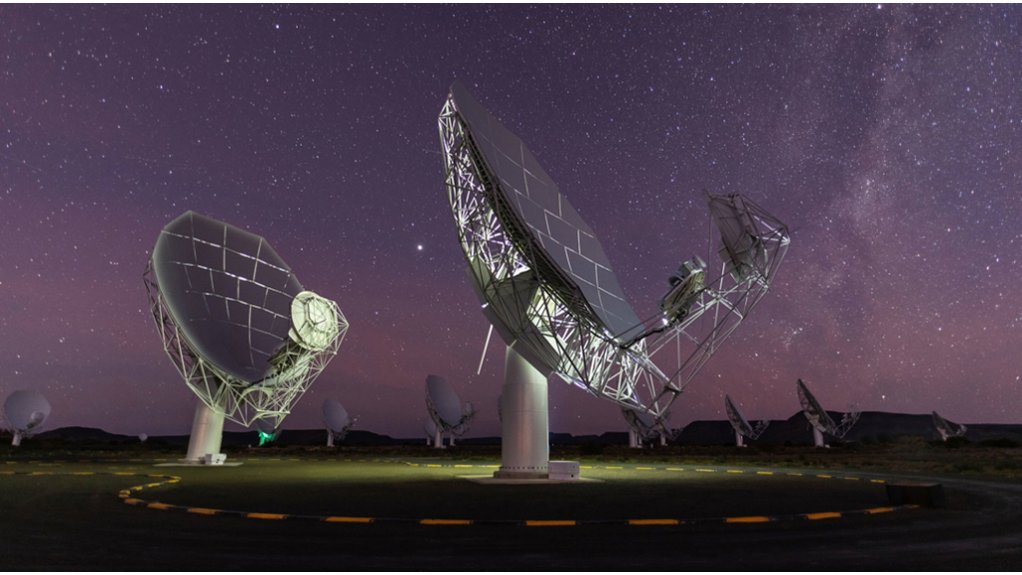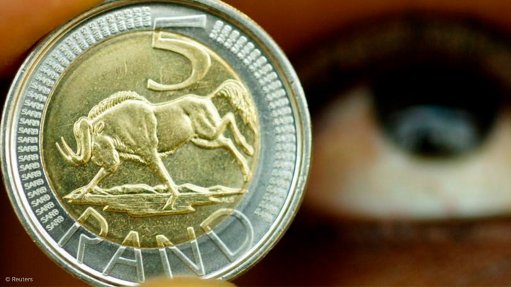MeerKAT delivers another astronomical triumph, this time involving gravitational waves
South Africa’s already-renowned MeerKAT radio telescope array, located in the Karoo region in the Northern Cape province, has been the key means of making yet another major scientific breakthrough. In this latest triumph, data from MeerKAT allowed an international team of South African, Australian and European astronomers to detect “compelling evidence” for what is called the low-frequency gravitational wave background.
(The South African team members were from the University of Cape Town (UCT) and the South African Radio Astronomy Observatory (SARAO). SARAO developed and operates MeerKAT, under the aegis of the National Research Foundation.)
The low-frequency gravitational wave background are ripples in cosmic spacetime that stretch and squeeze the very fabric of the universe. Gathering evidence for them requires observations stretching over multiple years. The MeerKAT gathered the necessary data in record time – less than 33% of the time previously required.
Gathering the data involved very precise observations of a network of pulsars. These are rapidly spinning neutron stars (which are incredibly dense bodies, resulting from the collapse of normal stars after they ran out of their sources of nuclear energy), thousands of light years from Earth, which emitted radio or X-ray energy with incredible preciseness. This made them invaluable “cosmic clocks”.
“To find evidence for a gravitational wave background, we first need to model the timing behaviour of each of the pulsars in our network very precisely,” pointed out UCT lecturer, study co-author and former MeerKAT commissioning scientist Dr Marisa Geyer. “Once we know the individual pulsars well, we can start analysing the combined behaviour of the group of pulsars. If we see pulsars in the same direction in the sky lose time in a connected way, we start suspecting that it is not the pulsars that are acting funny, but rather a gravitational wave background that has interfered.”
The experiment was designated the MeerKAT Pulsar Timing Array project. It was launched in 2019.
“Pulsar timing array experiments are long term in nature and searching for a gravitational wave background is a slow process,” explained UCT postdoctoral fellow Dr Jaikhomba Singha. “From past experience, we know that this may need 15 years of data. It is amazing to see that, with MeerKAT, evidence of the signal is possible even in a data-span of just 4.5 years..”
“We have achieved fantastic pulsar sensitivity and timing precision with MeerKAT,” enthused SARAO Science Operations lead Sarah Buchner. “It is deeply moving to see the exquisite results from the Pulsar Timing Array project.”
Article Enquiry
Email Article
Save Article
Feedback
To advertise email advertising@creamermedia.co.za or click here
Press Office
Announcements
What's On
Subscribe to improve your user experience...
Option 1 (equivalent of R125 a month):
Receive a weekly copy of Creamer Media's Engineering News & Mining Weekly magazine
(print copy for those in South Africa and e-magazine for those outside of South Africa)
Receive daily email newsletters
Access to full search results
Access archive of magazine back copies
Access to Projects in Progress
Access to ONE Research Report of your choice in PDF format
Option 2 (equivalent of R375 a month):
All benefits from Option 1
PLUS
Access to Creamer Media's Research Channel Africa for ALL Research Reports, in PDF format, on various industrial and mining sectors
including Electricity; Water; Energy Transition; Hydrogen; Roads, Rail and Ports; Coal; Gold; Platinum; Battery Metals; etc.
Already a subscriber?
Forgotten your password?
Receive weekly copy of Creamer Media's Engineering News & Mining Weekly magazine (print copy for those in South Africa and e-magazine for those outside of South Africa)
➕
Recieve daily email newsletters
➕
Access to full search results
➕
Access archive of magazine back copies
➕
Access to Projects in Progress
➕
Access to ONE Research Report of your choice in PDF format
RESEARCH CHANNEL AFRICA
R4500 (equivalent of R375 a month)
SUBSCRIBEAll benefits from Option 1
➕
Access to Creamer Media's Research Channel Africa for ALL Research Reports on various industrial and mining sectors, in PDF format, including on:
Electricity
➕
Water
➕
Energy Transition
➕
Hydrogen
➕
Roads, Rail and Ports
➕
Coal
➕
Gold
➕
Platinum
➕
Battery Metals
➕
etc.
Receive all benefits from Option 1 or Option 2 delivered to numerous people at your company
➕
Multiple User names and Passwords for simultaneous log-ins
➕
Intranet integration access to all in your organisation





















